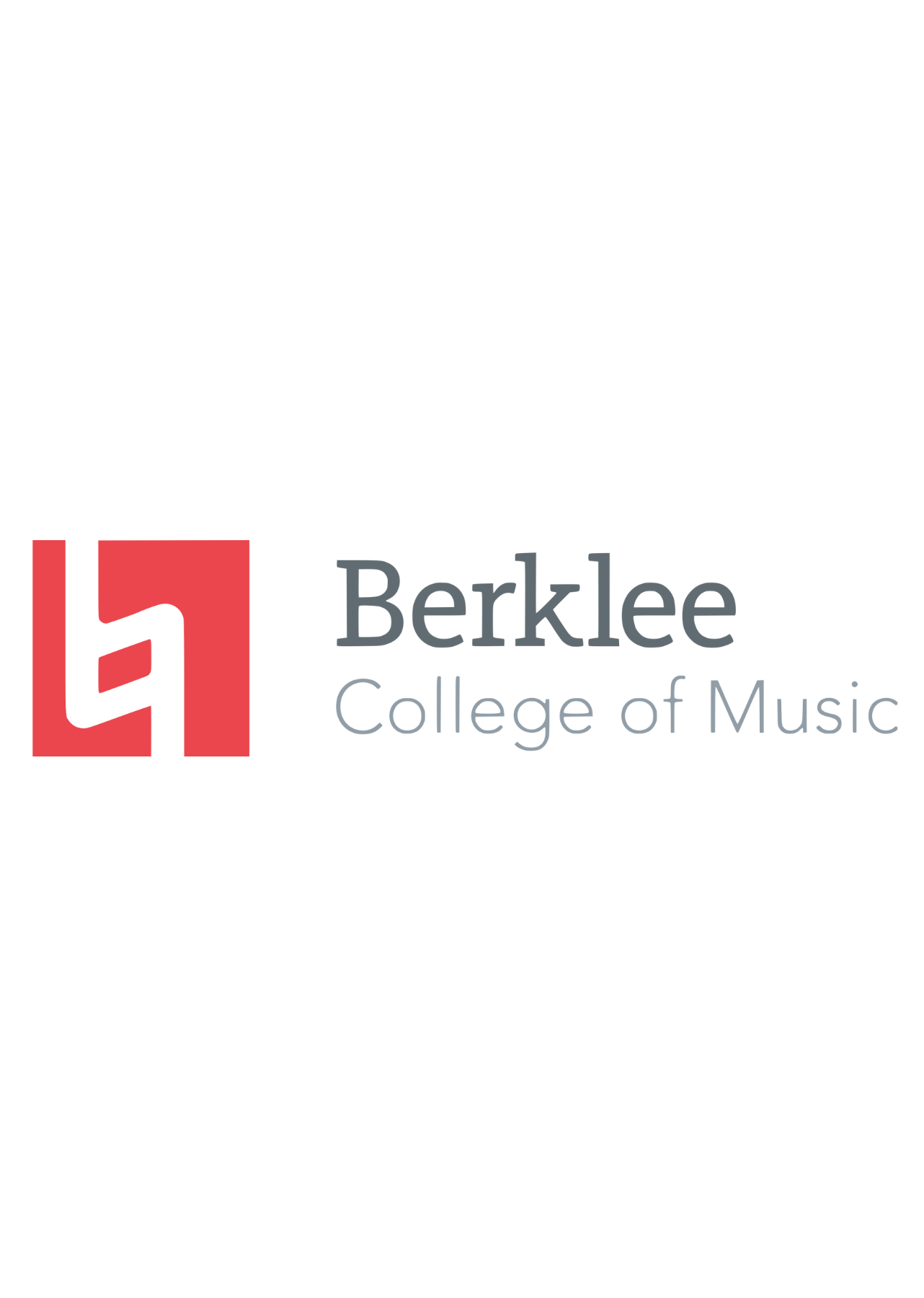If you are interested in the music industry, consider getting an online bachelor’s in music to make music your career. This degree prepares students for various jobs in the music industry, from music instructors to composers, sound technicians, producers, and promoters.
The U.S. Bureau of Labor Statistics (BLS) projects job growth of 4% for musicians from 2021 to 2031, with a median pay of about $30 per hour in 2021, the most recent year available. Music directors and composers have a projected job growth of 5%, while sound and broadcast technicians have a projected job growth of 10%, with a median annual salary of $49,000.
A bachelor’s degree usually takes four years to complete, but this depends on how many credit hours you take per academic year. Many schools require 120 to 132 credits for a bachelor’s degree in music. As for tuition costs, some schools charge between $200 to $600 per credit, depending on whether you’re an in-state or out-of-state student. Generally, the average undergraduate tuition for a private institution costs just under $46,000 yearly, while public institutions are roughly $19,000 yearly.
Why Trust Us
The Intelligent.com Higher Education Team is dedicated to providing students with independent, equitable school and program rankings and well-researched resources. Our expert-driven articles cover topics related to online colleges and programs, paying for school, and career outlooks. We use data from the U.S. Department of Education’s College Scorecard, the National Center for Education Statistics, and other reputable educational and professional organizations. Our academic advisory team reviews content and verifies accuracy throughout the year for the most current information. Partnerships do not influence rankings or editorial decisions.
- Analyzed over 2,000 national, accredited, and nonprofit colleges and universities
- 800+ rankings pages are reviewed and updated yearly
- Content is informed by reputable sources, surveys, and interviews with academic advisors and other experts
- Over 100 data points are reviewed for accuracy and quality throughout the year, including sources
How we rank schools
Our list features the best online Music degree programs at top colleges nationwide. Each school featured is a nonprofit, accredited institution — either public or private — with a high standard of academic quality for post-secondary institutions.
We evaluated each school’s program on tuition costs, admission, retention and graduation rates, faculty, reputation, and the student resources provided for online students. We collected data from trusted sources like the National Center for Education Statistics, individual school and program websites, school admissions counselors, and other data sources. Then, we calculated the Intelligent Score on a scale of 0 to 100 based on the following criterion:
Academic Quality:
- Admission rate versus enrollment rate
- Retention rate of students who return after year one
- Accreditation status (regional and programmatic)
- Nonprofit status, both private and public institutions
Graduation Rate
- Overall graduation rate
- Total number of currently enrolled students, including diversity metrics
- Student-to-faculty ratio
Cost and ROI
- In-state and out-of-state per-credit tuition rates and fees
- Required credits to graduate
- Earning potential after graduation
- Availability of federal student loans, scholarships, and other financial aid options
Student Resources
- Available student services for online-only and hybrid programs
- On-campus amenities like tutoring centers and the number of libraries
Read more about our ranking methodology.
The Top 13 Online Bachelor's in Music Programs
FiltersInstitution Type
Status
- Intelligent Score
- Alphabetically By University Name
- Acceptance Rate
- Enrollment
- In-state Graduate Tuition
- Out-of-state Graduate Tuition
- In-state Undergraduate Tuition
- Out-of-state Undergraduate Tuition

Berklee College of Music
Intelligent Score: 99.52In-state: $44,360
Out-of-state: $44,360
In-state: $42,973
Out-of-state: $42,973
SAT: N/A
ACT: N/A
$505
Online
New England Commission of Higher Education
120

Valley City State University
Intelligent Score: 97.72In-state: $6,119
Out-of-state: $10,709
In-state: $6,106
Out-of-state: $6,106
SAT: 880-1070
ACT: 17-22
$594
Online
National Association of Schools of Music
120

University of Maine at Augusta
Intelligent Score: 96.49In-state: $9,240
Out-of-state: $30,030
In-state: $8,298
Out-of-state: $8,298
SAT: N/A
ACT: N/A
Resident: $245
Non-Resident: $625
Online
National Association of Schools of Music
124

Liberty University
Intelligent Score: 95.74In-state: $14,791
Out-of-state: $14,791
In-state: $7,935
Out-of-state: $7,935
SAT: 1040-1250
ACT: 21-29
$390
Online
Southern Association of Colleges and Schools Commission on Colleges
120

Fort Hays State University
Intelligent Score: 95.23In-state: $4,140
Out-of-state: $14,580
In-state: $3,726
Out-of-state: $3,726
SAT: N/A
ACT: N/A
Resident: $181
Non-Resident: $529
Online
National Association of Schools of Music
120

Virginia Wesleyan University
Intelligent Score: 93.77In-state: $36,010
Out-of-state: $36,010
In-state: $8,982
Out-of-state: $8,982
SAT: 960-1190
ACT: 20-29
$399
Online
Southern Association of Colleges and Schools Commission on Colleges
120

University of Michigan - Flint
Intelligent Score: 93.27In-state: $16,520
Out-of-state: $53,669
In-state: $24,344
Out-of-state: $24,344
SAT: 1340-1520
ACT: 31-34
$516
Online
National Association of Schools of Music
120

University of Rochester Eastman School of Music
Intelligent Score: 92.43In-state: $57,188
Out-of-state: $57,188
In-state: $49,792
Out-of-state: $49,792
SAT: 1330-1510
ACT: 30-34
$526
Online
National Association of Schools of Music
120

University of West Georgia
Intelligent Score: 91.23In-state: $4,371
Out-of-state: $15,426
In-state: $4,338
Out-of-state: $4,338
SAT: 900-1090
ACT: 17-22
Resident: $182 NonResident: $643
Online
National Association of Schools of Music
120

The Juilliard School
Intelligent Score: 91.1In-state: $86,582
Out-of-state: $86,582
In-state: NA
Out-of-state: NA
SAT: Not Required
ACT: Not Required
$1,332
Online
Middle States Commission on Higher Education
160

Texas State University
Intelligent Score: 90.52In-state: $8,326
Out-of-state: $19,778
In-state: $6,946
Out-of-state: $6,946
SAT: 1010-1180
ACT: 20-25
$307
Online
Southern Association of Colleges and Schools Commission on Colleges
120

Rutgers University
Intelligent Score: 89.55In-state: $12,230
Out-of-state: $29,012
In-state: $17,736
Out-of-state: $17,736
SAT: 1180-1410
ACT: 25-32
$518
Online
Middle States Commission on Higher Education
134

Washington State University
Intelligent Score: 89.15In-state: $10,202
Out-of-state: $25,145
In-state: $11,781
Out-of-state: $11,781
SAT: 1020-1210
ACT: 20-26
$536 - $563
Online
Northwest Commission on Colleges and Universities
120
How to Choose an Online Bachelor’s in Music Degree Program
Choose your area of study
A bachelor’s degree in music goes beyond learning an instrument or embracing a particular style. An online bachelor’s in music often blends music theory and practical applications, training students for diverse opportunities that incorporate technology.
Many schools provide concentrations, such as songwriting, where students learn about song structure, lyrics, melody, arrangements, voice performance, piano performance, or guitar performance. A concentration in music education is for those who wish to share their love of music by teaching other students. Other concentrations might provide a background in music therapy, music ministry for places of worship, electronic sound design and music production, or music composition for TV, film, and video games.
Music students also can study the music business for a potential career as a promoter, manager, or publisher. Such training might involve learning about digital audio systems for recording, mixing, and editing music.
Regardless, note whether the school requires on-campus elements, such as a recital or in-person performances. Some schools allow online students to submit a thesis instead of these.
Research schools and programs
As you research schools and what they offer, check whether the school or the program is accredited through the U.S. Department of Education, the Higher Learning Commission, or the National Association of Schools of Music. Accreditation ensures that the program meets specific quality educational standards and impacts whether the school receives any federal financial aid.
In addition to accreditation, look into the school’s support services for online students, such as career counseling, mentorship programs, and library services. The school may also have networking opportunities through an alumni association. Students can typically find this information on the school’s website, social media profiles, and marketing materials. You also can reach out and ask program representatives more detailed questions.
Prepare for tests and applications
Each program varies in its application requirements and process. However, most bachelor’s degree programs in music require:
- A high school transcript or GED test scores
- Standardized test scores, such as from the SAT or ACT
- A personal essay or statement outlining your interest and long-term goals
- Letter(s) of recommendation from former teachers or music professionals
Depending on the program to which you’re applying, there might be other prerequisites, such as a minimum GPA, audition tape, or other samples of your work.
Select your program
Deciding on which program you want to attend can take time and effort. Consider each program’s factors and compare them with your priorities to narrow down your choices. Some students apply to a single program that meets their needs and goals, while others submit several applications to improve their chances of acceptance. Whatever you decide, most schools charge an application fee, a cost that can add up if you apply to multiple schools. If you’re concerned about expenses, contact the school to ask about a fee waiver.
Determine how you’ll pay for your degree
Every school with an online bachelor’s in music program specifies the financial support students can receive, including scholarships, work-study, assistantships, fellowships, and grants. Complete the Free Application for Federal Student Aid (FAFSA), which determines eligibility for federal student loans and need-based institutional aid.
If you’re already working, your employer may cover some costs through employer tuition assistance benefits if your degree relates to your current job. Talk with your school’s financial aid office for specific information about how to pay for your degree.
What Can You Expect from an Online Bachelor’s in Music Degree Program?
Online programs to earn your bachelor’s degree in music vary based on the school. Still, you can expect a core curriculum to include music history, music theory, genres, improvisation, and training one’s ear. Students also learn how to play alone and as an ensemble. Additionally, they often receive instruction in recording audio and some music production techniques.
Depending on your concentration, you might have more training in entrepreneurship, leadership skills, the music business, electronic music production, music technology, or songwriting. Some schools even allow students the flexibility of creating an interdisciplinary major that combines core music and liberal arts courses with concentrations such as touring, artist management, music promotion, music finance, sound engineering, or sound design.
Potential courses you’ll take in an online bachelor’s in music degree program
- Music Production Analysis: Here, students interested in songwriting learn what makes a successful song. Although the genres, lyrics, and messages might differ, the craft still involves conveying emotion through music, taking an elegant approach to repetition, and mixing a groove with vocal and instrumental performances. Expect to develop stronger listening skills throughout the course.
- Music Theory: Students here learn about foundational concepts in music, such as notational systems, scales, chord progressions, and tonality. This course also covers minor and major key harmonic phrases and melodic cadence.
- Sound Design for the Electronic Musician: This course involves hands-on activities in sound design concepts and explores how synthesizers work. Students learn more about imitating acoustic instruments, advanced modulation, and other technological skills.
- Music Composition: Building on music theory, a course like this instructs students in identifying and writing melodic elements. Students broaden their understanding of chords, scales, and harmonics while learning about hybrid chords, secondary dominants, and more.
- Music Recording: Students learn about the recording studio and managing sound systems. Coursework typically covers analog and digital sound systems and electronic and acoustic applications.
Online Bachelor’s in Music Degree Frequently Asked Questions
How do I apply to an online bachelor’s in music degree program?
Check the application process for each school you are applying to. Some schools have online portals for accepting applications, while others link to apps, such as the Common Application or Common App. This streamlined admissions application system allows students to apply to multiple schools. Be sure to have electronic or digital versions of all the required information, including PDFs or images of test scores, college transcripts, work experience, and letters of recommendation. If the school requires an audition tape or demo, you’ll want to have this in the proper format (such as a mp3) and file size. If you choose to mail in hard copies, be sure you double-check the submission deadlines and send everything in on time. Lastly, talk with a school admissions counselor to verify that you meet all the requirements.
How much does an online bachelor’s in music degree cost?
According to the National Center for Education Statistics (NCES), an undergraduate degree costs nearly $26,000 annually from 2020 to 2021 (the most recent statistics available). This cost includes tuition and fees for both four-year and two-year programs.
These records show the average undergraduate tuition for a private institution costs about $46,000 yearly, more than double that of a public institution at about $19,000 yearly.
However, all school costs vary depending on the charge per course credit, fees, the number of credits per course, and other expenses, such as books and course-specific software. Some schools charge a fee per semester or by term, while others vary in cost depending on whether you’re an in-state or out-of-state student, even if you attend online.
How long does it take to earn an online bachelor’s in music degree?
While this depends on the curriculum and the school, most schools say their online bachelor’s programs in music take about four years to complete, although some schools offer accelerated programs. Attending part-time or full-time affects that timeline, as does the total number of credits involved and whether the school provides synchronous or asynchronous courses. With synchronous classes, students meet virtually with the instructor on a set schedule. Asynchronous courses provide a syllabus with lessons and assignments for students to complete independently.
Compare School Options
Related Degrees
- Fashion
- Graphic Design
- Interior Design
- Music
- Game Design
- Film
- Photography
- Art and Art History

